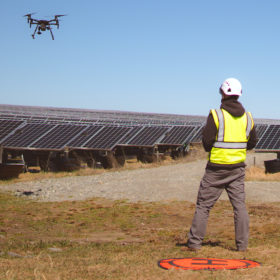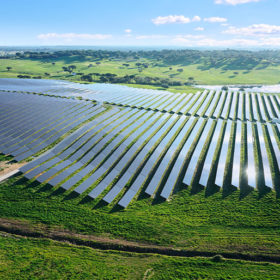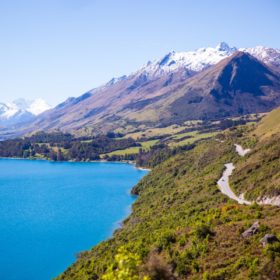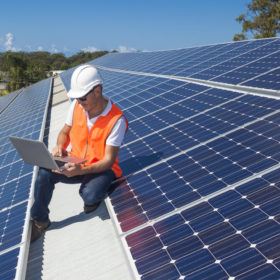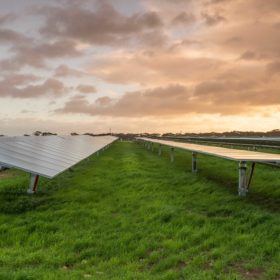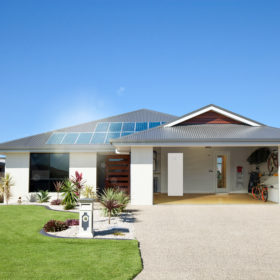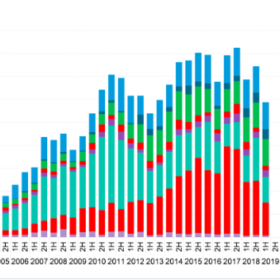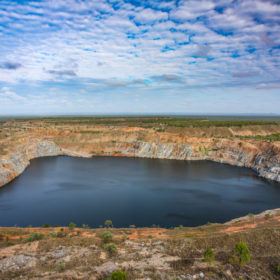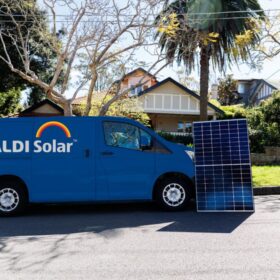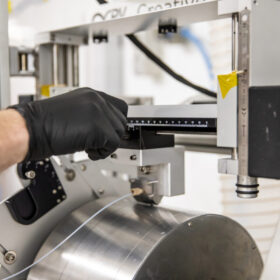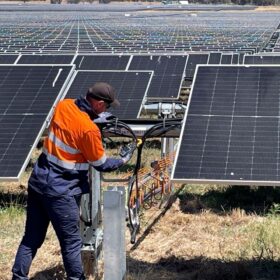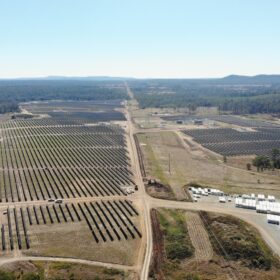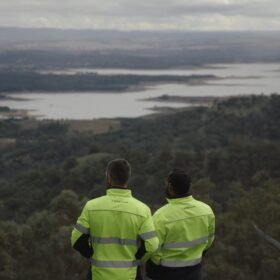Aerial thermography takes off as an O&M tool for Australian solar farms
Raptor Maps has some 700 MW of Australian solar farms under monitoring by aerial thermal imaging. Compared to the company’s worldwide customer base, Australian PV plant experiences roughly the same average percentage — between 1.5% and 2% — of power affected by faults and defects as global installations.
Victoria’s biggest solar farm up and running, powering steelworks and Melbourne tram network
With 128 MWp, Numurkah is the largest operating solar farm in Victoria. The project developed by French renewable energy producer Neoen has a major supply contract secured with the Laverton Steelworks and is one of two solar farms supplying 100% renewable energy to offset Melbourne’s entire tram network.
Sunport MWT solar technology bursts onto the Australian market
Metal wrap-through technology combined with PERC confers multiple benefits on Sunport Power’s new solar modules. Add the involvement of UNSW’s Professor Martin Green in the product development, Sunport’s 1.4 GW production capacity and a 30-year performmance warranty by insurer Lloyds… Two Australian wholesalers have started shipping.
Batteries well-suited to play valuable role in grid management in New Zealand’s energy transition
A report published by New Zealand’s state-owned transmission grid operator Transpower finds the widespread uptake of distributed battery storage could play an important role in supporting the power system as rooftop PV and electric vehicles are increasingly adopted.
More calls for review of Victoria’s Solar Homes Program
Following similar calls from other industry bodies, the Clean Energy Council has urged the Victorian government to review its landmark Solar Homes Program and warned about the serious effects its dynamics has on the industry.
Terregra switches on its first merchant solar farm in South Australia
The 5 MW Mobilong Solar Farm will run on a fully merchant offtake arrangement over its 30-year lifetime.
China auction allocates subsidies for 22.7 GW of solar with lowest bid of $0.0407/kWh
China’s National Energy Administration has given the greenlight to 3,921 ground-mounted and distributed generation projects. The approved energy price bids ranged from $0.0407 to $0.080, depending on system size, for an average price of $0.048.
Smart meter time of use pricing to drive up household energy costs without the help of solar and batteries
New research released this week by The Australia Institute shows that ‘time of use pricing’ (ToU) facilitated by smart meters is likely to drive up household energy costs by $429 a year on top of already high prices. Analysis of national electricity market data suggests that demand for electricity in Australia is very inelastic, which makes ToU more likely to increase the profits of electricity companies than to assist consumers. Households with solar PV and batteries, however, are best suited to cope with this type of pricing.
Global renewables investment fell in the first half of this year
While Spain, Sweden, Ukraine and Brazil attracted more funds than last year, China’s transition to an auction-based procurement system and slow performance overall in Europe saw worldwide backing decrease. BloombergNEF does expect investments to ramp up in the second half, however.
Genex’s Kidston pumped hydro project lands $610 million federal loan
Australia’s first large-scale project to use pumped hydro to store solar generated power, the Kidston facility in north Queensland, has landed a $610 million loan from the Federal Government’s the Northern Australia Infrastructure Facility (NAIF).
